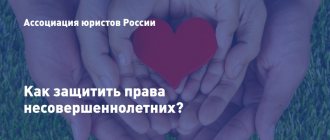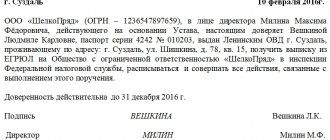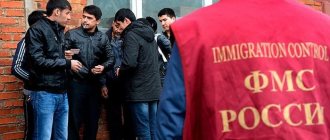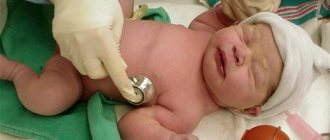Law is a concept from jurisprudence, which implies a set of norms and rules established by the state to regulate relations in society. Prescriptions allow a person to act in one way or another, to demand respect for rights in relation to himself.
Children, until they reach adulthood, are dependent on their parents or guardians. Due to their age, they cannot make certain decisions regarding their own lives. In order to protect young members of the legal society from possible dangers and attacks, the rights of the child are regulated by laws.
The individual rights and freedoms of children are legally secured. In this article we will study in detail the rights of minors of all ages, the documents regulating them, government guarantees, and penalties for failure to comply with norms and requirements.
Content:
- Features of children's rights
- Basic rights of a child in Russia What general rights does a child have in our country?
- Rights of the child in the family
- Social rights of the child
- Personal rights of a child
- Property rights of children
- Child's rights to child support
- About labor rights
- Right to medical care
Collection rules
The coming of age of a son/daughter is not the only reason for withholding monetary support from him to mom and dad. There are a number of other conditions that establish the responsibilities of children towards their parents, which are established by law. Among them:
- availability of documents that confirm family ties;
- evidence of financial problems of the pensioner;
- full legal capacity and mental health of the payer.
Important! Adoptive parents also have the right to financial support from the adopted child.
Separately, it is worth highlighting the situation when elderly parents have several adult children. In this case, the responsibility for material support will be divided between them. However, the percentage may vary depending on the following criteria:
- the number of natural and adopted minor children the payer has;
- having full legal capacity;
- level of material wealth.
The alimony obligations imposed on children should not significantly worsen the financial situation of his family. However, it is advisable to cover housing costs, food and medicine expenses.
Features of children's rights
According to the Convention on the Rights of the Child, approved by the UN General Assembly in 1989, a child is any person under eighteen years of age. From birth, children receive equal rights and freedoms. Discrimination based on gender, country of birth, nationality, race, religion, language, or financial status is unacceptable. Considering the immaturity of the physical and psychological plane, children need special protection, care, and protection of the state.
Human life is in the leading position in the hierarchy of values. The right to life is recognized as a fundamental basic good. The Constitution of Russia (Article 20) enshrines the right of every person to life.
A citizen of the Russian Federation is endowed with legal capacity by birth. Protecting children's rights begins even before this moment. An unborn child is endowed with conditional legal capacity before birth . He is a contender for inheritance (Civil Code of the Russian Federation, Art. 1166). The division of property can be done after the birth of an heir. According to the Family Code of the Russian Federation, divorce does not entail changes in the rights of the child, including the unborn (Article 30). Consequently, Russian law gives the child certain rights after the fact of conception has been established. The embryo is protected by laws regulating the medical field and social norms.
Protecting children's rights, providing opportunities to develop, learn, and socialize are important tasks for Russia. Parents and guardians must convey to children information about their rights, instill self-respect, and cultivate belonging to a legal society. The child is a citizen of the Russian Federation of no less importance, and equality between members of society is regulated by the Constitution of the Russian Federation.
What documents contain the rights of a child?
The main documents defending children's interests in Russia:
- Constitution. The basic law of the state regulating the rights of citizens regardless of age. Children are granted legal capacity upon birth.
- Family code. Set of rules for regulating family norms. Contains social, personal, property rights of children.
- Criminal Code. Determines the degree of criminal offenses and penalties for juvenile offenders.
- Federal Law N 124-FZ “On basic guarantees of the rights of the child in the Russian Federation” (06/24/1998). An expanded set of rules regarding the protection of the rights of the child in the field of life support, study, social adaptation, and health improvement.
- Federal Law N 273-FZ “On Education” (December 29, 2012). It justifies the child’s right to education in various institutions, determines the level of responsibility of parents or guardians for the child’s education.
- Federal Law N 159-FZ “On additional guarantees for social support for orphans and children left without parental care” (December 21, 1996). The document establishes standards for the upbringing and maintenance of children who have lost their breadwinners.
- Federal Law N 181-FZ “On social protection of disabled people in the Russian Federation” (11/24/1995). Regulates the freedoms of children with developmental disabilities.
- Regulatory documents formed by the constituent entities of the Russian Federation and self-government bodies. Laws on the education of children that do not contradict the Constitution and Federal Laws, issued locally.
- Charters of preschool educational institutions, schools. Educational institutions can draw up their own regulatory documents containing standards regarding behavior, appearance, and methods of teaching children. They are also subject to the basic laws of the Russian Federation.
In addition to the main regulations, there are targeted state programs to create favorable conditions for the growth and development of children. All regional laws are adopted in accordance with the main provisions of the country and international laws.
Student Responsibilities:
2.1. Study conscientiously.
(Constitution of the Russian Federation, Article 43, paragraph 4, Model regulations on a general education institution (approved by Decree of the Government of the Russian Federation of March 19, 2002 No. 196) paragraph 57)
2.2. Comply with the requirements of the school charter.
(Model regulations on a general education institution (approved by Decree of the Government of the Russian Federation of March 19, 2001 No. 196) paragraph 57)
2.3. To behave in a dignified, cultural manner at school and outside of it, to take care of the honor and maintenance of the traditions of the school, its authority.
(Moscow Law of March 10, 2004 No. 14 “On General Education in the City of Moscow”, Article 17, Clause 3, Model Regulations on a General Educational Institution (approved by Decree of the Government of the Russian Federation of March 19, 2001 No. 196) p 57)
1.26. Respect the honor and dignity of other students and school employees.
(Moscow Law of March 10, 2004 No. 14 “On General Education in the City of Moscow”, Article 17, Clause 3, Model Regulations on a General Educational Institution (approved by Decree of the Government of the Russian Federation of March 19, 2001 No. 196) p 57)
1.27.
Take care of school property, maintain cleanliness and order on the school premises.
(Model regulations on a general education institution (approved by Decree of the Government of the Russian Federation of March 19, 2001 No. 196) paragraph 57)
1.28.Take part in activities to improve the school grounds, clean classrooms and be on duty, with their consent and the consent of parents (legal representatives)
(Law of the Russian Federation “On Education”, Article 50, paragraph 14, Law of Moscow dated March 10, 2004 No. 14 “On General Education in the City of Moscow”, Article 17, paragraph 3, Order of the Ministry of Education of the Russian Federation dated 02/09/1998 No. 322 “On approval of the basic curriculum of general education institutions of the Russian Federation”, Order of the Ministry of Education of the Russian Federation dated March 9, 2004 No. 1312 “On approval of the federal basic plan and model curricula for educational institutions of the Russian Federation implementing general education programs”)
1.29. Respect property rights and understand that school supplies, clothing and other things of participants in the educational process located in the school belong to their owners. Any item found that is not yours must be handed over to a security guard, administrator on duty, or teacher.
1.30. Arrive at school 15 minutes before the start of classes, take off your outerwear, put on a change of shoes, hang them in the locker room, take your workplace before the first bell and prepare all the necessary school supplies for the upcoming lesson.
1.31.Bring to classes all necessary textbooks, notebooks, manuals, tools and writing materials.
(Model regulations on a general education institution (approved by Decree of the Government of the Russian Federation of March 19, 2001 No. 196) paragraph 57)
1.32.Complete homework on time.
(Constitution of the Russian Federation, art. 43, clause 4, Model regulations on a general education institution (approved by Decree of the Government of the Russian Federation of March 19, 2001 No. 196) clause 57, Law of Moscow dated March 10, 2004 No. 14 “On general education in the city of Moscow", Article 17, paragraph 3)
1.33.Keep a daily record of homework in a diary, and present the diary upon the teacher’s first request.
The student's diary is the main document in which all facts related to the learning process are recorded.
1.34.Come to a physical education lesson in sportswear. A student who does not have a uniform or is exempt from classes must remain in the gym.
1.35.Follow the requirements of school employees to draw up internal rules. Adhere to the rules of conduct established by the teacher in class.
(Model regulations on a general education institution, paragraph 57)
1.36.In case of missing classes, bring a note from parents (legal representatives) or a certificate from a medical institution.
(RF Law of July 10, 1992 No. 3266-1 “On Education” Art. 51, Standard instructions for filling out forms of primary medical documentation of medical institutions (approved by the USSR Ministry of Health of June 20, 1983 No. 27-14/70 -83)
Basic rights of the child in Russia
Ignorance of the law does not exempt you from responsibility, and ignorance of personal rights does not exempt you from violating them. Often the rights of minor children, enshrined in the basic laws of the country, are not respected or are not fully respected.
What general rights does a child have in our country?
A minor child in the Russian Federation is entitled to the following rights:
- life and upbringing in the family;
- protection of interests;
- communication with parents and relatives;
- expressing one's own opinion;
- name and its change;
- education;
- medicine;
- property.
Rights of the child in the family
Families, as structural units of society, are protected by the state. The main provisions are fixed in the Family Code. Regulatory acts regulate family relations and protect the rights of adults and minors.
Basic family rights of a Russian child:
Children have the right to live in a family, to be raised and cared for by their parents (Article 54 of the RF IC of 1995)
Staying in a family is a significant factor in the development of an individual’s personality. A full member of society must have high moral principles. Moral standards must be instilled by parents. The decision to remove a child from the family can be approved by the court if it is in his interests, or if being with his parents threatens life and health.
Placement into care of relatives or another family is possible only with the consent of the parents, if they have parental rights to the child. In case of divorce, children over 14 years of age independently choose which parent to remain with.
The right to freely communicate with relatives and parents
Communication with blood relatives, including grandparents, brothers, sisters, helps to grow in a friendly atmosphere and cultivate family values. It is impossible to protect children from contact with relatives in the event of a quarrel, divorce, or move. If the child’s right to unhindered communication is violated, relatives can file a complaint with the guardianship authorities. If the decision is not enforced, you can go to court.
The child has the right to be protected by his parents
They are the ones who represent interests legally. Parents are obliged to act in the interests of the minor, to defend his rights in court and in everyday situations. Family law is designed to protect children from the dishonest performance of their duties by parents. If a citizen of the Russian Federation notices a violation of the rights of a child, he should contact the guardianship authorities with a complaint. The case will be reviewed by regulatory authorities.
Always take care of your children, even when you are not in the immediate vicinity! Know where your child is, what route he is taking, what he is doing and what is happening around him with the Where are My Kids app.
Social rights of the child
Children are entitled to social security. A child under 18 years of age who becomes an orphan due to the death of their breadwinners or deprivation of parental rights is transferred to another family or an orphanage to be raised. The first case involves maintaining the child at the expense of the trustee or guardian, the second - at the expense of state funding.
Minor children left without parents must be sent to institutions for the prevention of neglect (Federal Law of the Russian Federation “On the fundamentals of the system for the prevention of neglect and juvenile delinquency”, edition 04/24/2020). For preventive purposes, homeless children, vagrancy, drug use, and children who have committed offenses and criminal offenses are subject to forced detention in special institutions for preventive purposes.
According to Federal Law No. 159-FZ “On additional guarantees for social support for orphans and children left without parental care” (dated December 21, 1996), children without parents are entitled to benefits for education, medical services, and property. Social protection is carried out by government agencies and regional self-government bodies in the field of children's law.
Personal rights of a child
Personal non-property rights of children include:
Opportunity to express your opinion
The child’s wishes are taken into account when resolving issues that directly affect his interests. In judicial or administrative proceedings, the opinion of children who are ten years old is required to be heard. Verdicts against the will of the child can be accepted only in exceptional cases when the child wants something that is contrary to his interests.
Change of full name
The surname is passed on to the child from the parents. If spouses have different surnames, they choose the appropriate option at their own discretion, just like the name. Disagreements on this issue are resolved by the guardianship authority or trustee. Up to the age of 14, parents can change the surname and first name of their children with the permission of a social worker. The procedure cannot be carried out unilaterally, for example, if one parent does not agree. The following circumstances are exceptions:
- lack of parental rights;
- failure to pay child support;
- unknown location;
- inparticipation in the educational process.
From the age of 10, when changing a name, the child’s opinion must be taken into account. The guardianship authority will consider how justified and valid the reasons for the event are. The decision will be made in the interests of the minor citizen.
The change of patronymic is carried out by court decision. A weighty argument is the adoption process. The presence of a living father, whose last name is indicated on the birth certificate, will become an obstacle to a decision in favor of the adoptive person if the father has parental rights.
When a child turns 14 years old, he has the right to independently submit an application for a name change to the registry office. You can change your full name or only part of it. The document will need to explain the reason for this decision. A mandatory requirement is a written, notarized agreement of both parents (in case of a complete family).
If the parents do not agree to change the name, a child over 14 can apply to the court to resolve the issue. The document must be submitted to the registry office. Alternative legal options for a minor to change their name are emancipation (with confirmed employment and recognition of legal capacity) or marriage.
Right to freedom of religion and assembly
A child, like an adult citizen, is endowed with freedom of belief regarding God. Article 28 of the Constitution of the Russian Federation guarantees freedom in terms of choosing religion. By age, the child does not have developed critical thinking and a sufficient amount of knowledge, therefore he is easily influenced by the environment and various manipulations. Parents, educational institutions, and others are prohibited from forcing children to participate in religious gatherings against their will. Thus, the law prevents the exertion of moral and psychological pressure on minor citizens.
Property rights of children
The Civil Code regulates the rights of the child regarding the disposal of personal property (Art.,). From the age of 14, children are allowed to enter into transactions with written permission from a parent or guardian. Personal earnings and scholarships can be used at the discretion of the minor without written certification.
Children under fourteen cannot dispose of property. This right is transferred to their parents or guardians. The exception is small household purchases. The powers of parents in property transactions are regulated by the Civil Code of the Russian Federation (Article 37). The article contains a list of restrictions on the disposal of the property of a minor ward. Without the consent of the guardianship authorities, parents and guardians cannot sell, rent, or donate the child’s property.
Children have the right to use the property of their parents when living together with them by mutual consent (RF IC, Article 60).
Minor members of society are endowed with inheritance rights. A child may receive property by inheritance, will, or as a gift. Also, children are heirs of the second priority, if there are no primary heirs.
Child's rights to child support
The maintenance of the child is entrusted to the parents and other family members. If money for maintenance is not received from one or two parents, the court imposes a forcible penalty. The amount of alimony depends on the official salary and income. One child is entitled to ¼ of the income. The amount of penalties increases proportionally depending on the number of children. It is possible to reduce or increase the amount of alimony by court order.
If a parent receives money irregularly, a fixed monthly amount is established for the child's life. The funds go to the bank account of the parent or guardian with whom the child actually lives. The money received must be spent exclusively on the needs of the little citizen (Article 60 of the Family Code of the Russian Federation).
Regulatory documents on the protection of the rights of the childmaterial (preparatory group)
Basic documents on the rights of the child and the responsibilities of parents and (persons in their place) in relation to children
Every child should know their rights and responsibilities in order to easily operate with them in any life situation. But, as practice shows, in many cases children do not have access to information and materials that detail and reveal issues of the legal status of minors.
The preamble to the Convention on the Rights of the Child states that the family, as the basic unit of society and the natural environment for the growth of all its members and especially children, should be given the necessary protection and assistance so that it can assume full responsibility for raising children within society. For the full and harmonious development of his personality, a child needs to grow up in a family environment, in an atmosphere of happiness, love and understanding. Family legislation is based on the need to strengthen the family, build family relationships on feelings of mutual love and respect, mutual assistance and responsibility to the family of all its members, the inadmissibility of arbitrary interference by anyone in family affairs, ensuring the unhindered exercise by family members of their rights, the possibility of judicial protection of these rights .
The rights of citizens in the family can be limited only on the basis of the Federal Law and only to the extent necessary in order to protect the morals, health, rights and legitimate interests of other family members and other citizens. The Family Code of the Russian Federation emphasizes that the exercise by family members of their rights and the performance of their duties should not violate the rights, freedoms and legitimate interests of other family members and other citizens. Issues of motherhood, paternity, upbringing, education of children and other issues of family life are resolved by spouses jointly, based on the principle of equality of spouses. Spouses are obliged to build their family relationships on the basis of mutual respect and mutual assistance, promote the well-being and strengthening of the family, and take care of the well-being and development of their children. The rights of children in the family and the responsibility of parents for their healthy development are regulated by many legal documents, both at the international and Russian levels. The main international document for the protection of the rights of minors is the Convention on the Rights of the Child.
UN Convention on the Rights of the Child (approved by the UN General Assembly on November 20, 1989). Article 5 of this document emphasizes that States Parties respect the responsibilities, rights and obligations of parents, guardians or other persons legally responsible for the child to properly manage and guide the child in the exercise of the rights recognized by this Convention and do so in accordance with the developing abilities of the child. Article 18 recognizes the principle of common and equal responsibility of both parents for the upbringing and development of the child. Article 27 outlines the right of every child to a standard of living necessary for the physical, mental, spiritual, moral and social development of the child. The parent or other persons raising the child bear the primary responsibility for providing, within the limits of their abilities and financial resources, the living conditions necessary for the development of the child.
The basic law of our country is the Constitution of the Russian Federation, 1993 (as amended on June 9, 2001). State protection of the family is regulated by Article 38: “clause 1. Motherhood and childhood, the family are under the protection of the state; clause 2. Caring for children and raising them is an equal right and responsibility of parents; clause 3. Able-bodied children who have reached the age of 18 must take care of their disabled parents.”
Federal Law of July 24, 1998 No. 124-FZ “On basic guarantees of the rights of the child in the Russian Federation” (as amended on July 20, 2000). Article 7. Assistance to the child in the implementation and protection of his rights and legitimate interests: clause 2. The child’s parents (persons replacing them) assist him in carrying out independent actions aimed at realizing and protecting his rights and legitimate interests, taking into account the child’s age and within the scope of the child’s legal capacity established by the legislation of the Russian Federation.
Article 9. Measures to protect the rights of the child when carrying out activities in the field of his education and upbringing: clause 1. When carrying out activities in the field of education and upbringing of a child in the family... the rights of the child cannot be infringed.
Article 15. Protection of the rights of children in difficult life situations.
If the court determines that the parents (persons replacing them) are guilty of violating the rights and legitimate interests of children, compensation for harm caused to children is determined by the court, taking into account the necessary measures for social rehabilitation and social adaptation of children.
Article 23. clause 1. Parents (persons replacing them), as well as persons carrying out activities for the education, upbringing, development, health protection, social protection and social services of the child, promoting his social adaptation, social rehabilitation and (or) other activities with his participation, have the right to apply in accordance with the procedure established by the legislation of the Russian Federation, to the court with a claim for compensation to the child for harm caused to his health, property, as well as moral damage.
Family Code of the Russian Federation of December 29, 1995 No. 223-FZ (as amended on January 2, 2000). Article 54. The right of a child to live and be raised in a family: clause 2. Every child has the right to live and be raised in a family, as far as possible, the right to know his parents, the right to their care, the right to live together with them, except in cases where this is contrary to his interests. A child has the right to be raised by his parents, to ensure his interests, comprehensive development, and respect for his human dignity.
Article 55. The child’s right to communicate with parents and other relatives, clause 1. The child has the right to communicate with both parents, grandparents, brothers, sisters and other relatives. The dissolution of the parents' marriage, its recognition as invalid or the parents' separation do not affect the rights of the child. If the parents live separately, the child has the right to communicate with each of them. A child has the right to communicate with his parents also if they live in different states; clause 2. A child in an extreme situation (detention, arrest, detention, being in a medical institution, etc.) has the right to communicate with his parents and other relatives in the manner prescribed by law.
Article 56. The child’s right to protection: clause 1. The child has the right to protection of his rights and legitimate interests. Protection of the rights and legitimate interests of the child is carried out by parents (persons replacing them), and in cases provided for by this Code, by the guardianship and trusteeship authority, the prosecutor and the court. A minor, recognized in accordance with the law as fully capable before reaching the age of majority, has the right to independently exercise his rights and obligations, including the right to defense; clause 2. The child has the right to protection from abuse by parents (persons replacing them).
Article 57. The child’s right to express his opinion. The child has the right to express his opinion when deciding any issue in the family that affects his interests, as well as to be heard during any judicial or administrative proceedings. Taking into account the opinion of a child over 10 years of age is mandatory, except in cases where this is contrary to his interests.
Article 64. Rights and responsibilities of parents to protect the rights and interests of children. clause 1. The protection of the rights and interests of children rests with their parents. Parents are the legal representatives of their children and act in defense of their rights and interests in relations with any individuals and legal entities, including in the courts, without special powers.
Article 65. Exercise of parental rights: clause 1. Parental rights cannot be exercised in conflict with the interests of children. Ensuring the interests of children should be the main concern of parents.
Constitution of the Russian Federation, 1993 (as amended on June 9, 2001).
Article 17, part 3. The exercise of human and civil rights and freedoms must not violate the rights and freedoms of others.
Article 21, part 2. No one shall be subjected to torture, violence, or other cruel or degrading treatment or punishment.
Article 38, part 2. Caring for children and raising them is an equal right and responsibility of parents.
Family Code of the Russian Federation dated December 29, 1995 No. 223-FZ (as amended on January 2, 2000):
Article 54 “The right of the child to live and be raised in a family” affirms the child’s right to respect for his human dignity.
Article 56 is devoted to the child’s right to protection of his rights and legitimate interests. Such protection must be carried out by his parents or persons replacing them, as well as by the guardianship and trusteeship authorities, the prosecutor and the court. At the same time, the child also has the right to protection from abuse by his parents. Thus, before he turns 14 years old, he has the right to independently apply to the guardianship and trusteeship authorities and other organizations for the protection of the rights of the child, and after 14 years - to the court. In accordance with Article 65, when exercising parental rights, parents do not have the right to cause harm to the physical or mental health of children or their moral development. Methods of raising children must exclude neglectful, cruel, rude, degrading treatment, insult or exploitation. Parents who exercise parental rights to the detriment of the rights and interests of children are liable in accordance with the procedure established by law. The Family Code provides for “deprivation of parents of parental rights” (Article 69) or “limitation of parental rights” (Article 73) as measures to protect children from abuse in the family.
Article 77 provides that if there is an immediate threat to the life and health of a child, the guardianship and trusteeship authority has the right to immediately take him away from his parents (one of them). This information is intended to address situations where there is a danger to the child from the parents.
The Criminal Code of the Russian Federation provides for liability for child abuse:
– for committing physical and sexual violence, including against minors (Articles 106-136); – for crimes against family and minors (Articles 150-157). The federal law of the Russian Federation “On the fundamentals of the system for the prevention of neglect and juvenile delinquency” notes that children with antisocial behavior should be provided with individual psychological and pedagogical support, and also sets out the main tasks and principles of the activities of institutions for the prevention of neglect and juvenile delinquency and the provisions for the implementation of the educational process indicating the working conditions of educational institutions, among which are designated special schools for deviant teenagers.
The Model Regulations on a special educational institution for children and adolescents with deviant behavior indicate the creation of conditions that provide them with psychological, medical and social rehabilitation, including behavior correction and adaptation in society for the development of the personality of pupils in need of special care and protection, which allows them to divert them from committing crimes, receive basic general or secondary (complete) general education, increase self-esteem, and increase personal and social competence. It should be noted that the educational process in these institutions is complicated by a number of reasons: admission of students to school throughout the entire academic year, persistent reluctance of adolescents to study and attend school, unstable conditions in their behavior; the use of standard educational programs that do not take into account the characteristics of deviant behavior of students. Taking into account the above factors, in order to organize the education and upbringing of children and adolescents in special general education schools, it is necessary to use adapted curricula based on socio-pedagogical support.
Regulatory documents and protection of children's rights in preschool educational institutions
Consultation for preschool teachers
Purpose of consultation:
-Formation of knowledge of the legal culture of teachers on the protection of children's rights.
-Formation of an active pedagogical position of parents and equipping them with the necessary legal knowledge, preventing antisocial upbringing of children.
Tasks:
-Increase the level of legal culture of parents, jointly study the main provisions.
-Convention on the Rights of the Child.
-Form an individual parental position, a style of humane relationships with children.
-Involve parents in the process of raising and developing children, in the life of preschool educational institutions.
-Replenish the collection of practical and visual material on special legal education.
Stages of development:
-Acquaintance with the preschool institution, basic regulatory documents.
-Planning and providing legal education for parents.
-About attracting parents to participate in the life of the kindergarten.
-Visits to families by teachers and specialists.
-Analysis of work results.
Forms of work:
-Acquaintance at the first general meeting with the main documents of the preschool educational institution and the main legal documents.
-Group parent meetings.
-Survey of parents regarding the individual characteristics of the child.
-Questioning and testing.
-Individual forms of work with parents (conversations, consultations, family visits, instructions from parents, etc.)
- Consultations with specialists.
-Attending open classes at preschool educational institutions on legal and other topics.
-Joint events with the participation of parents.
-Joint events: exhibitions of crafts, drawings, exhibitions of holiday stands and newspapers, etc.
-Round tables, seminars and workshops.
The reforms of Russian society carried out in the 1990s had an ambiguous impact on the family and led to profound changes in its life. Many families, having lost their previous government support, were unable to adapt to new living conditions. Socio-economic difficulties have been aggravated by the fact that for many parents the landmarks of the past have been irretrievably lost, when the public education system actually removed responsibility from the family for raising a child. Without receiving qualified pedagogical assistance and using spontaneous sources of information, they are unable to cope with the difficulties in raising children. Not knowing how to behave in difficult situations, parents use corporal punishment, threaten children, intimidate and show excessive severity and even cruelty towards their children; most of them do not attach importance to the children’s experiences and do not seek to establish their cause. They do not understand that children constantly need protection and love from family and friends, that self-confidence and in their capabilities, value guidelines and worldview in children are formed, first of all, in the family. Abuse of children affects their future lives, their psyche changes: they perceive the reality around them differently, they think differently, they behave differently. It is very important for the future of Russia that children grow up in an atmosphere of respect and do not suffer from negative consequences. The main hope of families and children is the teaching staff of preschool institutions, which must stand up for the protection of the rights and dignity of the child. The issue of protecting a child from all forms of violence is significant in pedagogical activity, and it cannot be considered as a fashionable trend or event in the flow of many teacher affairs. The teacher is the main character; the observance of children’s rights, both in a preschool institution, and the protection of children from abuse in the family depends on his qualifications and culture.
Main international documents on the protection of children's rights:
1. “Declaration of the Rights of the Child” - adopted by the UN in 1959. 2. “Convention on the Rights of the Child” - adopted by the UN in 1989. 3. “World Declaration on the Survival, Protection and Development of Children” - adopted by the UN in 1990.
The Declaration of the Rights of the Child is the first international document that calls on parents, as well as voluntary organizations, local authorities and national governments to recognize and respect children's rights through legislative action.
The ten principles of the Declaration reflect the rights of children:
- addressed,
- citizenship,
- Love,
- understanding,
- material support,
- social protection,
- opportunity to get an education,
- develop physically,
- morally,
- spiritually in conditions of freedom and dignity.
Particular attention is paid to child protection. The child must receive timely assistance and be protected from all forms of neglect, cruelty, and exploitation. The Declaration was the semantic basis for the most important international document - the Convention on the Rights of the Child.
For the first time in the Convention, a child is considered not only as an object requiring social protection, but also as a subject of law who is given all human rights:
- education and respect for human rights and fundamental freedoms;
- education and respect for the child’s parents and his cultural identity, for the national values of the country in which the child lives;
- preparing the child for a conscious life in a free society, in the spirit of understanding, peace, tolerance, equality, friendship between peoples.
Art. 42 of the Convention states that all government agencies, including educational institutions, are obliged to widely inform both adults and children about the principles and provisions of the Convention. To do this, it is necessary to highlight those rights, the observance and protection of which can be ensured by teachers of educational preschool institutions:
- right to health care,
- right to education,
- the right to participate in games,
- the right to preserve one's individuality,
- the right to protection from all forms of physical or mental violence, insult, neglect or neglect or abuse.
The Convention on the Rights of the Child serves as the basis for the development of binding state legal documents.
Regulatory documents at the federal and regional levels:
- Constitution of the Russian Federation.
- According to the Constitution, motherhood, childhood and family are protected by the state.
- Family Code of the Russian Federation.
- Law “On Basic Guarantees and Rights of the Child in the Russian Federation.”
- Law “On Education of the Russian Federation”.
These documents specify the concepts of mechanisms for protecting the rights and legitimate interests of children, and introduce an absolute ban on the infringement of children’s rights in the family and educational institutions. The standard regulations of a preschool institution guarantee the child’s right to protection, health, education and development.
The Family Code regulates legal issues in family relationships. Section 4 is entirely devoted to the rights and responsibilities of parents.
Art. 54 guarantees the child the right to live and be raised in a family, to know his parents, the right to their care and to live together with them, to education, to ensure his interests, comprehensive development, respect for his human dignity.
Art. 55 - the child’s right to communicate with parents and other relatives. The child has the right to communicate with both parents, grandparents, brothers, sisters and other relatives.
Art. 56 - guarantees the protection of the rights and legitimate interests of the child by parents or legal representatives, guardianship and trusteeship authorities.
Art. 63 - stipulates the rights and responsibilities of parents for the upbringing and education of children (parental responsibility for the upbringing, health, physical, mental, spiritual and moral development of the child). The protection of the rights and interests of children, which must be carried out in accordance with the laws and interests of children, is entrusted to parents. To realize the rights and legitimate interests provided for by the Constitution of the Russian Federation, the Federal Law “On Basic Guarantees of the Rights of the Child in the Russian Federation” was adopted, which distinguishes a special category of children:
- disabled children;
- children are victims of interethnic conflicts;
- children with behavioral problems;
- children with disabilities.
Protection of children's rights in preschool institutions
Violation of children's rights is associated with the low level of legal and psychological-pedagogical culture of their parents. In order for preschool institutions to effectively carry out work to protect children’s rights, it is necessary to improve the legal and pedagogical culture of preschool workers and the ability to interact with parents. The educator should perceive the work of observing and protecting children’s rights not as an additional burden, but as the most important condition for increasing the effectiveness of the educational process.
Forms of child abuse:
- physical violence (intentional infliction of physical harm to a child). Signs: fear of physical contact with adults; desire to hide the cause of injury; tearfulness, loneliness, lack of friends; negativism, aggressiveness, cruelty to animals; suicide attempts.
- sexual abuse (involving a child, with or without his consent, in sexual activities with adults). Signs: nightmares, fears; knowledge about sexual behavior that is not characteristic of age, sexual games that are not characteristic of the character; the desire to completely cover your body; depression, low self-esteem.
- mental violence (recurrent, long-term or constant mental impact on a child, inhibiting personality development and leading to the formation of pathological character traits). These are: open rejection and constant criticism of the child, verbal threats, insulting, degrading remarks, deliberate physical or social isolation, lies and failure by adults to fulfill their promises, a single harsh mental impact that causes mental trauma in the child. Signs: constantly sad appearance, long-term depressed mood; various somatic diseases; restlessness, anxiety, sleep disturbances; aggressiveness; tendency to solitude, inability to communicate; delayed physical and mental development; poor academic performance; nervous tic, enuresis.
- Neglect of the child's needs (neglected children, lack of basic care for the child, as a result of which his emotional state is disrupted and his health and development are threatened). Signs: delayed speech and motor development; constant hunger; stealing food; demand for affection and attention; low self-esteem, low academic performance; aggressiveness, impulsiveness; sleepy appearance and fatigue; sanitary and hygienic neglect; retardation in physical development; often indolent morbidity; antisocial behavior, vandalism.
Prevention of child abuse:
- creating confidential business contacts with parents;
- participation of parents in the work of a preschool institution (parental committee, parent club);
- family studies (conversations, questionnaires, testing, studying products of children's activities, observing the interaction of children and adults during morning reception, role-playing games).
Actions of a teacher in case of child abuse:
Children who are abused are at the mercy of a stronger person, fearful, distrustful, and withdrawn. These signs, which appear in one or another combination, may indicate abuse or violence against a child, including sexual violence; if a teacher suspects abuse, he should try to gain the child’s trust, observe his behavior, paying attention to the above signs. Pay attention to the behavior of your parents or guardians, and in conversations with them, express your concern about the behavior. If a child has disclosed abuse or sexual violence, the caregiver should:
- praise the child for trusting you with a secret, so that he understands that they believe him and take his problem seriously;
- show understanding for the child’s feelings of guilt and shame, but do not strengthen these feelings in him;
- explain to him that it is possible to stop violence and cruelty, and that this must be done in his interests;
- To keep the promise of secrecy until it becomes obvious that the child cannot remain in this position, you need to inform the child that you want to take certain measures.
It is forbidden:
- show your child your feelings (anger, fear, confusion, disgust); - blame the person who committed the offense, because the child is often emotionally attached to him and continues to love him; - ask the child to keep your conversation secret, but you need to take into account the child’s request to keep his message secret.
If you are unable to solve the problem yourself, you should seek help from specialists (medical specialist, psychologist, social worker, manager).
If a child told other children about the secret, and not the teacher, then you need to:
- react as neutrally as possible (do not show feelings, do not make judgments);
- protect the child from the reactions of other children;
- give the child maximum attention;
- make it clear that the problem can be solved.
In case of violence against a child by unknown adults, not only the child, but also his parents need help. If this is also sexual violence, then providing assistance requires special training and medical expertise. Parents have experienced shock and, as a rule, want to keep everything a secret from relatives, neighbors and other children. If a child has been victimized by a stranger, and in the case of carefully hidden abuse by parents, the teacher should seek help and advice from professionals from special services and centers (psychologist, health service, helpline).
Preschool childhood is the period when personality is formed. The child is completely dependent on the adults around him, parents and teachers. Inadequate care, behavioral, social and emotional problems that arise at this age lead to serious consequences in the future.
Protecting children from abuse. A new look at the problem.
Protecting children from abuse is one of the most important functions of all adults who come into contact with children. A young child usually experiences abuse in the family. Therefore, timely identification of cases of abuse of children helps not only to stop violence against them, but also to begin timely and thoughtful work with a dysfunctional family. Very often, these measures prevent the breakdown of a family, the removal of a child from the family, and the deprivation of parents of parental rights. In other words, this is an opportunity to prevent the emergence of another social orphan - a child left without parents. “Most often, children living in dysfunctional families suffer from psychological and physical violence. Children growing up in such families constantly join the ranks of the homeless and neglected, become victims of crime, and often commit crimes themselves.”
It is necessary to formulate new principles of interaction with such families and develop new mechanisms for protecting children living in such families.
First, let’s determine which family we consider to be a family at risk for social orphanhood. Families at risk are families in which the needs of the child are neglected. These are families in which a child may witness violence against loved ones or in which he himself may be abused. In other words, these are families in which it is bad and dangerous for a child to live.
According to this definition, families at risk can be completely different in social composition, income and health status. Division into categories underlies the compilation of a social passport of educational institutions and the organization of social services for families. But with this approach, families that can be classified as families at risk for social orphanhood fall out of sight. Not all poor parents treat their children badly and all low-income families are families at risk for social orphanhood. We cannot classify the entire category of such families as a risk group. As a result, we may lose sight of families in which there is a threat to the health and life of the child. A categorical approach to protecting children from abuse and preventing social orphanhood turns out to be ineffective. It needs to be replaced by an individual approach. What is the fundamental difference between an individual approach and a categorical one?
Social services must learn to diagnose each individual case of cruelty or maltreatment of a child and build a plan for working with the family that is necessary in this particular case.
It is extremely important to identify family dysfunction in the early stages of the crisis and use a new technology to support such a family - case management technology. In many cases, this technology makes it possible to provide the family with the socio-psychological assistance necessary for rehabilitation and prevent the removal of the child from the family.
The basis for diagnostic work and subsequent actions to work with the family and provide assistance to the child is not his life in a family of one category or another, but a signal coming from public organizations, educational or health care institutions, or from private individuals observing a particular child in his real life . For example, a kindergarten teacher or nurse may notice bruises on a baby. Neighbors may witness bullying or child abuse.
A social teacher in a preschool educational institution can become the very “initial authority” where such a signal is received. He, due to his status and professional position, must have the necessary addresses and telephone numbers that allow him to transmit the “signal” further - to those authorities that are capable of intervening in the fate of the child and his family. If a social teacher participates in working out the paths along which a signal of maltreatment of a child moves, if a social teacher skillfully and timely interacts with various organizations responsible for working with dysfunctional families, he makes a personal contribution to the innovative process of developing an individual approach in organizing social child protection.
Rights of the child from birth and by age
The legal status of a child changes as they grow older. The older the little citizen, the more rights to independent actions and decisions he acquires. Let us briefly consider the gradation of children’s rights in the Russian Federation depending on age:
- 1.5 years. The child has the right to attend the nursery.
- 3 years. Children can be sent to kindergarten.
- 6 years. The child receives the right to attend school (the Constitution of the Russian Federation) and make small household purchases (office supplies, groceries). He can enter into transactions to dispose of funds provided by legal representatives, with their consent. Any transactions can also be concluded with the aim of receiving benefits free of charge, which do not require notarized confirmation.
- 8 years. Children can participate in public associations (Federal Law No. 82-FZ “On Public Associations” dated May 19, 1995).
- 10 years. The right to express an opinion appears, which may affect the change of name, place of residence with one of the parents, or adoption.
- 14 years old. At this age, the list of rights increases significantly. Upon turning fourteen years old, a child has the right to change citizenship, cancel adoption, dispose of personal earnings at his own discretion without parental consent, and bear responsibility for transactions made. You can independently dispose of the results of intellectual activity and protect your personal interests in court. You can work part-time after school.
- 15 years. A teenager can get a job and make decisions about medical interventions.
- 16 years. If there is a good reason, you can get married. This will require permission from local authorities. At the age of sixteen, teenagers can become members of cooperatives.
- 18 years. Young people are becoming adults.
Responsibilities of a teenager in society
Every citizen not only has rights, but also bears responsibility for the actions he commits. Teenagers are no exception to this rule.
Certain responsibilities are assigned to a minor as a citizen of the Russian Federation. They are inherently linked to the fact of citizenship. Among them:
- obtaining a passport;
- military registration;
- education.
The passport of a citizen of the Russian Federation is the main identification document. Every teenager over 14 years of age is required to take all measures to receive it within 30 days. Otherwise, liability arises in accordance with the law. In this case it is a fine.
All males who have reached the age of seventeen are subject to military registration. The selection is made by specialized bodies depending on the health status of the conscript.
The child’s right to education is contrasted with the obligation to acquire knowledge. This includes proper behavior in class, respectful attitude towards teachers and officials of the organization, completion of homework, and compliance with the charter of the institution. However, responsibility for improper performance of training obligations is not assigned to
on the minor, but on his parents.
Separately, it is worth highlighting the parental responsibilities of minors. From the age of 16, a teenager can independently raise his child and bear responsibility for improper fulfillment of his obligations.
Responsibility for violation of children's rights
Most often, the violators of children's rights are parents themselves, family members, teachers, peers, and officials. Let's look at the most common offenses against children:
Violation of the right to family life
Proof of this is the number of street children and juvenile delinquency. According to statistics from the Prosecutor General's Office on the state of crime in Russia, the number of crimes against minors is increasing every year. By law, parents are obliged to provide their child with normal conditions for development and upbringing. The presence of a large number of children in special institutions with living parents, deprived of parental rights or evading responsibilities, confirms the number of violations of this child’s right.
Violation of the right to education
The lack of normal living conditions is closely related to studies. Neglected children from low-income families often do not attend educational institutions. Citizens are required to receive secondary general education in any case. Failure by parents to fulfill their obligations to support and raise a child is considered an administrative offense (Administrative Code of the Russian Federation, Article 5). The amount of the established penalty varies between 100-500 rubles. If a repeated offense is recorded, the fine increases to 4000-5000 rubles.
Violation of rights to decent content
Material costs fall on the shoulders of the parents. According to statistics from the bailiff service for 2021, in the first 6 months the department received 1.2 million requests for the collection of alimony in the amount of 167 billion rubles. As of 2021, every third person evades paying money for child support . Men make up the majority of defaulters (about 78%). Many even close private businesses to reduce official income or quit their jobs so as not to pay alimony.
Civil liability is enshrined in the Civil Code of the Russian Federation (Article 5.35.1). A penalty of 0.5% is charged daily from the resulting amount of the defaulter’s debt. An administrative penalty in addition to the specified penalty additionally provides for the payment of a fine in the amount of up to 2,500 rubles.
According to the Criminal Code of the Russian Federation, Article 157, malicious evasion of alimony payments entails criminal liability. Punishment includes correctional labor for up to 1 year, compulsory labor for up to 180 hours, arrest for up to 3 months. The court has the right to deprive the defaulter of parental rights.
If the amount of alimony debt exceeds 10,000 rubles, the bailiff may impose a ban on traveling abroad. There is also a ban on re-registration of movable and immovable property and the use of a driver’s license. If the debt exceeds 3,000 rubles, the property may be seized and subsequently sold. For particularly persistent defaulters with large sums, bailiffs are allowed to use several measures simultaneously.
Violation of property rights
Children's rights to housing are protected by the norms of family, housing, and civil law. Parents often act contrary to the interests of their children, against the law. The reason for this is dishonesty, irresponsible attitude and financial insolvency. The child retains the right to housing owned by the parents, even after the divorce.
The sale of housing with registered minors is illegal (Article 167 of the Civil Code of the Russian Federation). The consent of the guardianship authorities acts as an insurance factor, but in court the purchase and sale transaction can easily be declared illegal. Guardianship authorities allow the sale of real estate in the event of purchasing children of equivalent housing. Since it is impossible to control this in advance, a violation of rights can only be challenged after the fact. To do this, you will need to collect evidence. Due to their age, young citizens cannot defend their rights, and after a long time it is very difficult to prove they are right.
Child abuse
Abuse includes all forms of physical and psychological violence, including beatings, insults, sexual assault, and neglect. A complete list is not recorded in the law due to the variety of factual circumstances under which a minor may suffer.
Families with children exposed to violence from parents or other persons should be monitored by the authorities for the prevention of juvenile delinquency. Any citizen has the right to contact the police if illegal actions against a child are detected. If measures are not taken, citizens have the right to write a statement to the prosecutor's office.
For physical violence in the form of beatings, torture, and other physical influence, criminal liability is provided (Chapter 16 of the Criminal Code of the Russian Federation).
Prohibition to communicate with parents and close relatives
If the ban on communicating with relatives is contrary to the interests of the child, an administrative fine of 2-3 thousand rubles is possible. The same applies to concealing the location of children against their will, failure to comply with a court decision at the child’s place of residence.
Violation of sexual integrity of children
Children are vulnerable members of society in need of protection. They often do not understand the nature and illegality of the actions committed against them, therefore they need the protection of the state especially carefully.
According to the Russian Ministry of Internal Affairs, the number of sexual crimes involving minors has increased by 42% over 5 years. Every 6th crime is committed in the family. One in twelve children suffers from parental sexual abuse.
Crimes against sexual integrity are regulated by the Criminal Code (Chapter 18). Rape is punishable by imprisonment for a term of 3 to 20 years, depending on the severity of the crime and the consequences. Additionally, the offender’s rights to hold certain positions and conduct activities related to children may be limited. For especially serious crimes committed against children under 14 years of age, the court may impose life imprisonment.
Punishments for indecent acts are specified in Article 135 of the Criminal Code of the Russian Federation. If a child aged 14-16 years is injured, imprisonment for a term of 3 to 8 years is provided. Gang violence, as well as crimes committed by previously convicted persons, are punishable by imprisonment from 5 to 20 years.
Violation of information security of children on the Internet
Children are protected by law from information that could harm their physical and psychological health. Such information includes incentives for violence, suicide, and the use of drugs. It is prohibited to disseminate information to the masses that refutes family values.
In 2021, the law tightened liability for violating the information security of children on the Internet. An ordinary citizen faces a fine of up to 3,000 rubles, officials up to 200,000 rubles, legal entities – up to 600,000 rubles. respectively.
Teen Responsibility
From the age of 14, a teenager can be held accountable. When committing an offense, a person is subject to punishment in accordance with criminal law. If previously the maximum measure was registration, then upon reaching the specified age, depending on the crime, the child may receive a punishment, even including imprisonment.
From the age of 16, a minor can be subject to administrative measures. Violation of traffic rules, petty hooliganism, appearing in public places under the influence of alcohol or drugs are grounds for bringing a teenager to justice on a general basis.
In addition, the minor is now obliged to compensate for the damage caused. These actions are carried out in accordance with Civil legislation.
International rights of the child
What documents regulate children's rights at the international level?
The main regulatory and legal international acts are:
- Declaration of Human Rights (11/10/1949).
- Declaration of the Rights of the Child (November 20, 1959).
- Convention on the Rights of the Child (11/20/1989).
- World Declaration on the Survival, Protection and Development of Children (30.09.2000).
UN Convention: Basic Principles
Let us briefly consider the essence of the Convention:
- Principle 1. All children, without exception, are covered by the Declaration.
- Principle 2. Children need to be provided with favorable conditions for life and development.
- Principle 3. The child receives a name and citizenship after birth.
- Principle 4. The child and his mother are required to be provided with prenatal and postnatal medical care, social security, as well as subsequent medical services.
- Principle 5. Children with developmental disabilities need specialized care and concern.
- Principle 6: Children need love and understanding. A child is most comfortable in a family. If a child is left without parents, the responsibility for his maintenance falls on the state.
- Principle 7: Children should receive an education. Basic education should be free for everyone.
- Principle 8: Children have the primary right to protection.
- Principle 9. Cruelty and exploitation of children, including labor activity before the legal age, is unacceptable.
- Principle 10. It is unacceptable to cultivate any type of discrimination when raising children.
General Rules of Student Conduct:
Student behavior in class:
3.1. Do not be distracted yourself and do not distract other students from classes, as this violates the right of other students to receive the necessary knowledge.
(Constitution of the Russian Federation, Article 17 paragraph 3, Moscow Law of March 10, 2004 No. 14 “On general education in the city of Moscow”, Article 17 paragraph 3)
3.2. It is recommended to stand up when a teacher or any adult enters the classroom, greeting them, and if you want to answer or ask a question to the teacher, raise your hand.
3.3. Recess time is the personal time of each student, which he can spend at his own discretion without disturbing others.
During breaks, the student must clean up his workplace; prepare everything you need for the next lesson; leave the office if the teacher asks; obey the requirements of the floor attendants; do not interfere with other students' rest.
(Constitution of the Russian Federation, Article 17, paragraph 3)
2.26.Student behavior in the cafeteria:
- treat the canteen property with care,
- when eating in the dining room, adhere to good manners, eat while sitting,
- clean up after yourself after eating, put chairs back in place,
- do not come to the dining room in outerwear,
- Do not take food out of the dining room. The student can bring breakfast with him from home, buy pastries, juices and other products at the school buffet.
3.5. School attendants
(carried out by students in grades 7-11) are required to:
- attend the meeting held by the administrator on duty and the class teacher at 7 o’clock. 55 min;
— they will check that students have replacement shoes when entering the school;
— help younger schoolchildren change clothes;
- maintain order in the locker room, assist in maintaining discipline during breaks;
- maintain cleanliness in assigned areas; At the end of lessons, remove the trash and hand over the territory to the administrator on duty or the class teacher.
Officers are prohibited from using physical force or humiliating students, even if they violate the rules of conduct. If necessary, contact the duty administrator or class teacher.
3.6.
Requirements for the appearance of students:
- Primary school students come to school in school uniform. (approved by the primary school association method)
— students in grades 5-11 come to school in business-style clothes. Boys wear suits (jacket, shirt with tie or turtleneck). Girls - a dark-colored skirt, blouse or turtleneck,
- wearing clothes that are too revealing is unacceptable;
- bright, provocative elements of clothing, jewelry, are not allowed,
— it is recommended not to use excessive makeup, extreme hair color and not to wear a lot of jewelry during classes,
- recommended manicure - classic, light, non-provocative tones,
- it is unacceptable to wear clothing that emphasizes belonging to any youth or social movement,
— at school, students must wear removable shoes,
- students are not allowed to wear sportswear during lessons,
- It is not allowed to be in school in outerwear, without special reasons.
Guarantees of the rights of the child, protection of his interests. How are they protected in Russia?
In addition to the regulatory documents previously mentioned in the article, the following laws ensure the protection of the rights of the child:
- Federal Law No. 48-FZ “On guardianship and trusteeship” (04/24/2008).
- Decree of the President of the Russian Federation “On the concept of national security of the Russian Federation” (Article 170, 01/10/2000).
- Decree of the President of the Russian Federation No. 986 “On the Commissioner under the President of the Russian Federation for Children’s Rights” (September 1, 2009).
According to Decree of the President of the Russian Federation N 986 (as amended on January 15, 2019), the protection of children’s rights in Russia is carried out by the Commissioner for Human Rights, the Commissioner for Children’s Rights. These persons are appointed and removed from office by the President.
Scope of powers of children's ombudsmen:
- protection and upholding of the rights of a specific minor;
- preventive inspections of children's institutions for violations of children's rights;
- active participation in the formation of new legislative acts regarding children;
- writing proposals to improve mechanisms for legal protection of children;
- educational work among children, parents and legal representatives.
The Commissioner for Children's Rights of the Russian Federation is obliged to monitor the legality of the implementation of legislation by bodies of any organizational and legal form whose activities are related to the upbringing, education, medical care, health improvement, and safety of children.
The current family legislation has been brought into compliance with the international obligations of the Russian Federation. The protection of the rights of the child is entrusted to parents, guardians, and officials with appropriate powers.










